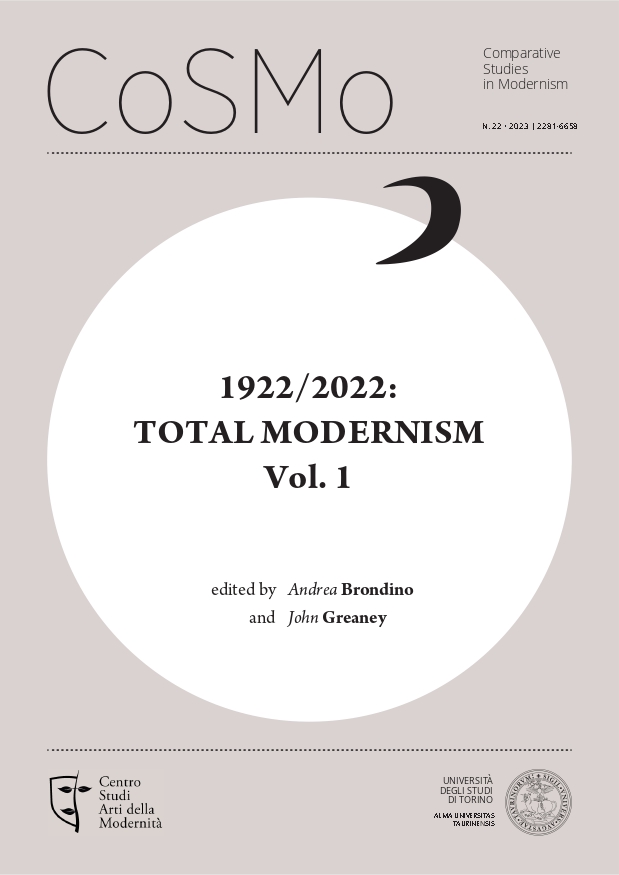Noluntas sciendi, voluntas nesciendi
Anthropology of the Modernist Character
DOI:
https://doi.org/10.13135/2281-6658/7813Keywords:
Modernist Character, Knowledge, Psychoanalysis, Ethics, Nihilism, Thomas Mann, Henry James, Italo SvevoAbstract
Among the many illnesses that literary characters might suffer from, the peculiar relationship with truth that some characters of the modernist novel come to develop is certainly the most alarming. This can manifest itself in two occasionally intertwined ways: on the one hand we have the voluntas nesciendi, the deliberate refusal of knowing something understood as truth; on the other hand there is the noluntas sciendi, the precautionary dismissal of a dangerous and destabilizing knowledge. It is not a matter of incapacity or impossibility, but rather of choice, one which holds meaning and therefore entails moral consequences. It is the reversal of the ancient Aristotelian axiom by which “all men by nature desiring to know”: men, Freud argues, just as naturally wish not to know, and thus protect themselves through repression [Verdrängung], resistance [Widerstand], disavowal [Verleugnung], negation [Verneinung]. And since “qui auget scientiam, auget et dolorem,” we might also be dealing with the paradoxical actualization of the biblically derived imperative not to know. After reading Schopenhauer and learning something new about life and death, Thomas Buddenbrook closes the book in hopes of forgetting what he read. Lambert Strether, the protagonist of Henry James’ Ambassadors, surrenders to a sort of self-blinding. But Italo Svevo’s Zeno Cosini is the hero of this issue, and for this rewarded by his author. Zeno’s is the final, Nietzschean, and nihilistic outcome of a pathological perspective which is more worrisome than ineptitude, though one which ultimately leads to salvation: truth is pointless for happiness.
Downloads
Downloads
Published
Issue
Section
License
Authors keep the copyrights for their work and give the journal the work’s first publication copyright, which is at the same time licensed under a Creative Commons License – Attribution, which in turn allows other parties to share the work with an acknowledgement of the work's authorship and initial publication in this journal.
Content Licence

You are free to copy, distribute and transmit the work, and to adapt the work. You must attribute the work in the manner specified by the author or licensor (but not in any way that suggests that they endorse you or your use of the work).
Metadata licence

CoSMo published articles metadata are dedicated to the public domain by waiving all publisher's rights to the work worldwide under copyright law, including all related and neighboring rights, to the extent allowed by law.
You can copy, modify, distribute and perform the work, even for commercial purposes, all without asking permission.






